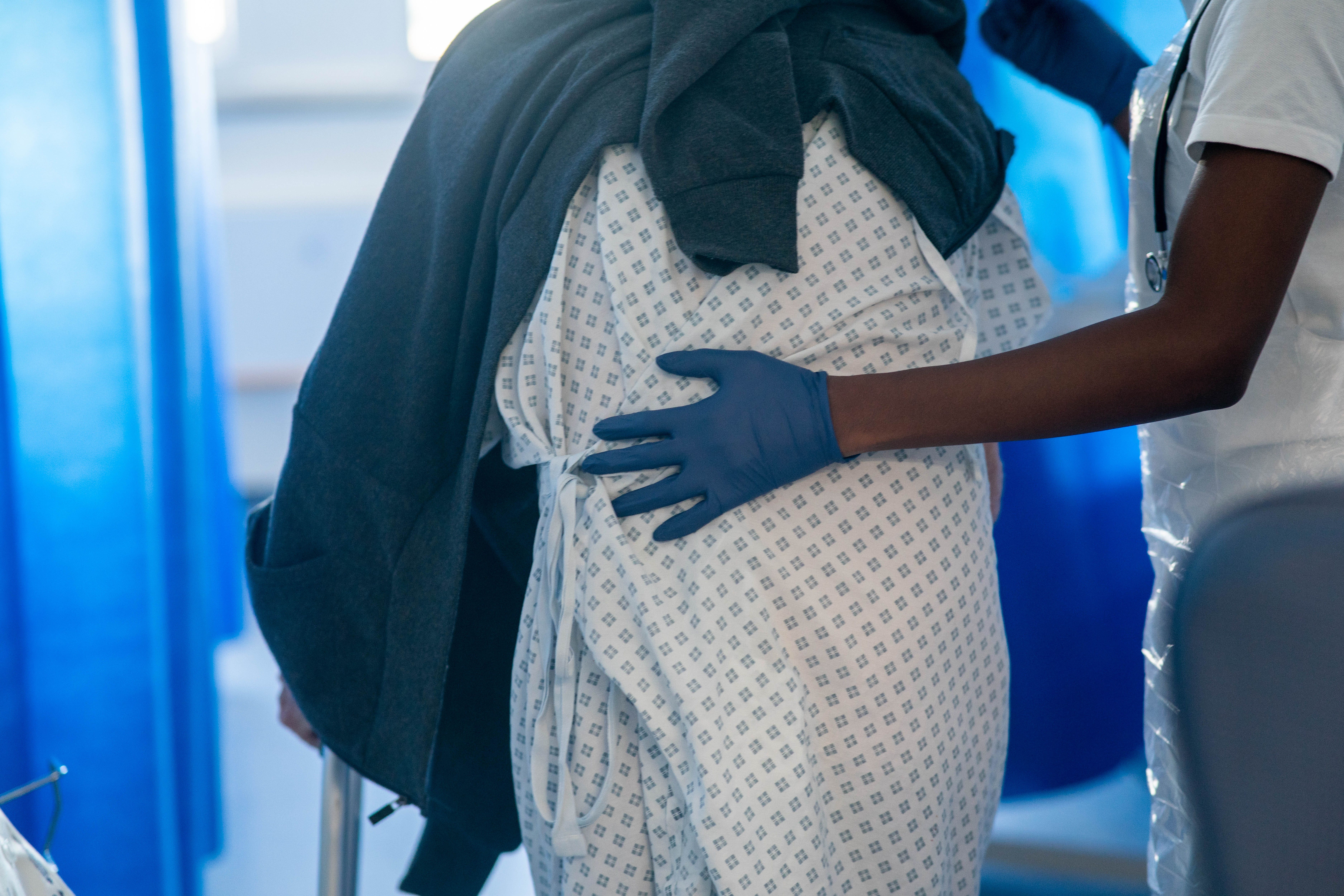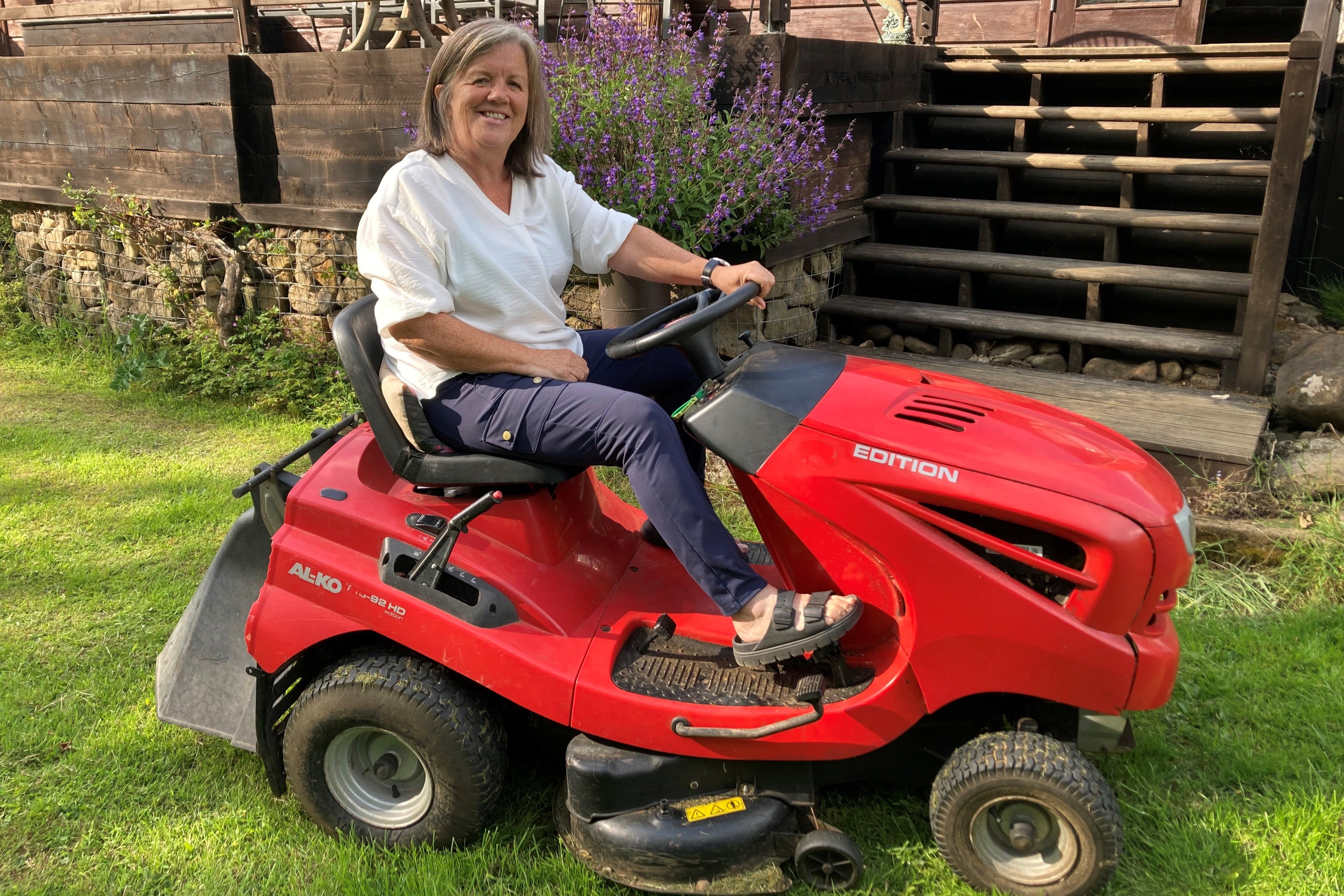
A UK trial has found that a chemotherapy-free approach to treatment may lead to better outcomes for some leukaemia patients, in what scientists are calling a "milestone".
The groundbreaking UK-wide trial could reshape the way the most common form of leukaemia in adults is treated.
Researchers from Leeds assessed whether two targeted cancer drugs could perform better than standard chemotherapy among patients with chronic lymphocytic leukaemia (CLL).
Chronic lymphocytic leukaemia is the most common form of leukaemia in adults, with about 4,000 new cases recorded in the UK every year.
The Flair trial, which took place at 96 cancer centres across the UK, saw 786 people with previously untreated CLL randomly assigned to receive standard chemotherapy; a single targeted drug, ibrutinib, or two targeted drugs taken together, ibrutinib and venetoclax, with treatment guided by personalised blood tests.
Researchers found that after five years, 94 per cent of patients who received ibrutinib plus venetoclax were alive with no disease progression.

This compares with 79 per cent for those on ibrutinib alone and 58 per cent for those on standard chemotherapy, according to the study, which has been published in the New England Journal of Medicine and presented to the European Haematology Association congress in Milan, Italy.
Meanwhile, 66 per cent of patients on the new combination had no detectable cancer in their bone marrow after two years, compared with none of the people who received ibrutinib alone and 48 per cent on chemotherapy.
Ibrutinib is a type of drug known as a cancer growth blocker, which works by stopping signals that cancer cells use to divide and grow, and venetoclax blocks the functions of a protein found in CLL cells.
Experts said that the new treatment regime was also tolerated better than traditional treatments.
Dr Talha Munir, consultant haematologist at Leeds Teaching Hospitals NHS Trust, who led the study, said the Flair trial is a “milestone”.
“We have shown that a chemotherapy-free approach can be not only more effective but also more tolerable for patients,” she said.
“By tailoring individualised treatment based on how well the cancer responds, we’re moving into an era of truly personalised medicine.”

Catherine Whitfield, 63, from Farnley, West Yorkshire, was diagnosed with CLL in 2018 after she noticed symptoms including bleeding gums, constant illness and neck pain.
She signed up for the trial, which was coordinated by the Leeds Cancer Research UK Clinical Trials Unit at the University of Leeds and sponsored by the University of Leeds.
“After three years of treatment, I am still MRD negative – that means no cancer cells,” she said.
“I lost my husband to cancer. I have seen how hard it could be.
“My first thought after my diagnosis was, I will never see my grandchildren being born and growing up.
“Now I have two grandchildren, Drew and Alaia, and they are a delight and highlight the joys of a healthy life”.
Ms Whitfield added: “The way this trial was explained, it just made sense. Also, the thought of chemotherapy was scary to me. The trial felt right. And it was.”
Main symptoms of chronic lymphocytic leukaemia
NHS
Many people who have chronic lymphocytic leukaemia do not have any symptoms, but the main ones include:
- swollen glands, usually in your neck or under your arms
- losing weight
- getting ill a lot
- feeling tired even though you've had a good night's sleep
- a rash that looks like small bruises or bleeding under the skin and does not fade when you roll a glass over it, similar to meningitis
- bleeding or bruising for no reason
- looking unusually pale and feeling breathless
- a high temperature even though you're not unwell
- aches and pains that will not go away
- sweating at night
Dr Iain Foulkes, executive director of research and innovation at Cancer Research UK, which funded the trial along with AbbVie, and Johnson and Johnson, said: “The results of the Flair trial show that we can provide kinder, more targeted treatment for chronic lymphocytic leukaemia, which gives people with CLL more precious time with their loved ones.
“We’re hopeful that the results of the Flair trial will power new treatment options for leukaemia and other blood cancers, thanks to the efforts of researchers at in Leeds and across the UK working together on this trial.”
‘Promising’ new test could detect pancreatic cancer in its early stages
New leukaemia treatment hailed as ‘milestone’ for patients
Survey reveals the UK city where residents spend the most time online
Blood test for early signs of pancreatic cancer trialled by UK doctors
Gen X and millennials 3X more likely to get appendix cancer than their parents
Here’s why you feel awful after going back to bed for that extra hour of sleep







